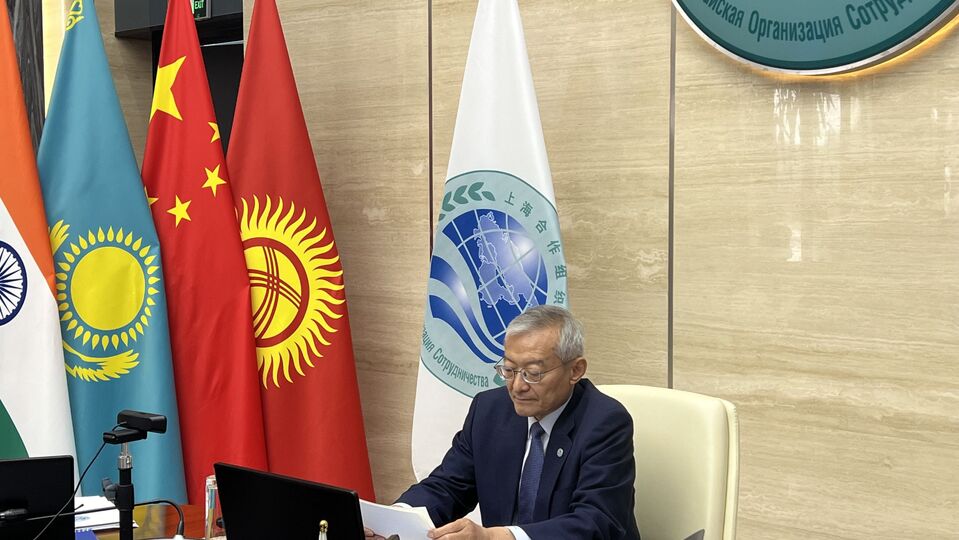On 4 July 2023, India chaired an SCO Heads of State Council Meeting via videoconference. Attending the meeting were Prime Minister of the Republic of India Narendra Modi, President of the Republic of Kazakhstan Kassym-Jomart Tokayev, President of the People’s Republic of China Xi Jinping, President of the Kyrgyz Republic Sadyr Japarov, Prime-Minister of the Islamic Republic of Pakistan Mian Muhammad Shehbaz Sharif,
President of the Russian Federation Vladimir Putin, President of the Republic of Tajikistan Emomali Rahmon and President of the Republic of Uzbekistan Shavkat Mirziyoyev. SCO Secretary-General Zhang Ming and Director of the Executive Committee of the SCO Regional Anti-Terrorist Structure Ruslan Mirzayev also took part in the meeting. Zhang Ming reported on the SCO’s activities over the past year.
The heads of observer states, including President of the Republic of Belarus Alexander Lukashenko, President of the Islamic Republic of Iran Seyyed Ebrahim Raisi and President of Mongolia Ukhnaagiin Khurelsukh also took part in the meeting, as well as President of Turkmenistan SerdarBerdimuhamedov, as the guest of the Indian side. The heads of executive agencies of the UN, the CIS, the CSTO, the EAEU, the Conference on Interaction and Confidence-Building Measures in Asia (CICA) and ASEAN agencies also joined the event.
The summit participants focused on the state of multilateral cooperation in all spheres of SCO activity and its development prospects, including political and security issues, trade and investment, transportation and energy, culture and humanitarian exchanges. The leaders discussed global and regional developments in great detail and prioritised joint efforts to counter current threats and challenges. They exchanged opinions on making SCO activities more efficient, modernising its executive mechanisms and the prospects for expanding the Organisation.
The participants reaffirmed their commitment to forging a more diverse, democratic, equitable and multipolar world order, based on generally recognised principles of international law, multilateralism, equal, indivisible, comprehensive and stable security, cultural and civilisational diversity, mutually beneficial and equitable cooperation between states, with the UN playing a central coordinating role.
The sides signed or approved 14 joint documents, including the New Delhi Declaration, a statement on countering radicalisation leading to terrorism, separatism and extremism, a statement on cooperation in the field of digital transformation, as well as a number of decisions on certain aspects of the Organisation’s activities.
One of the key achievements of the summit was the completion of a procedure for admitting the Islamic Republic of Iran into the Organisation as a member state. Now the SCO has nine member states.
Minsk has also taken one more step towards becoming an SCO member state, with the concerned parties signing a memorandum on the obligations of the Republic of Belarus in order to obtain the status of an SCO member state.
This meeting of the SCO Heads of State Council is the final event of India’s SCO chairmanship in 2022-2023.
The Republic of Kazakhstan will take over the chairmanship in the Organisation in 2023-2024.
